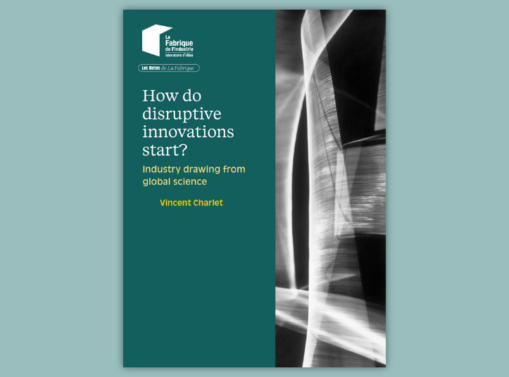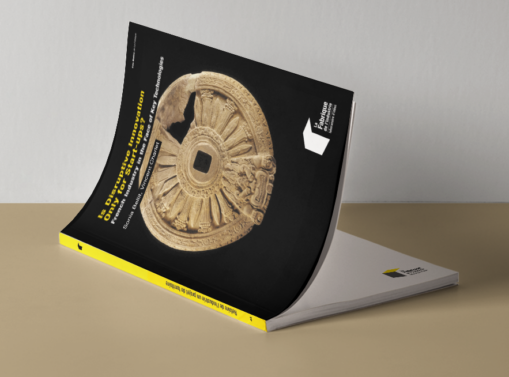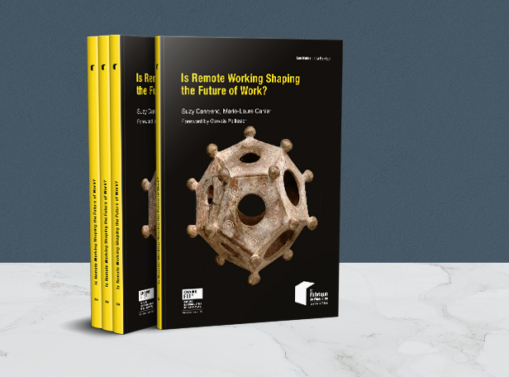Quality of working life : a source of competitive advantage. Reform the way work is organized
Psychosocial risks, work-related stress, occupational health, quality of working life (QWL), wellbeing and happiness at work. Studies of life at work employ a strikingly wide range of terms (covering a variety of visions), whether in companies, during social negotiations, in public and media debates, even in the academic sphere.
Psychosocial risks, work-related stress, occupational health, quality of working life (QWL), wellbeing and happiness at work. Studies of life at work employ a strikingly wide range of terms (covering a variety of visions), whether in companies, during social negotiations, in public and media debates, even in the academic sphere.
Why look at QWL?
Despite its flexible, polysemic character, QWL is probably the broadest term to tackle a great number of aspects of life at work, i.e. the work itself, its content, the material conditions for carrying it out, its organization, the social relations system it fits into, and individuals’ power to act and give meaning to their actions, in other words, the capacity given to them to work well in good conditions. This concept thus extends (far) beyond the traditional question of working conditions, so important to the unions, or the working environment, so important to start-ups. It is also a way of putting a positive value on work, pushing aside conceptions exclusively associated with suffering. Work is an essential dimension of qualify of life in general, in fact the right to work is written into the French Constitution.
Is the scope of this concept too wide to be genuinely effective, or on the contrary, does it help open up the debate and get stakeholders to dialogue, by putting work at the heart of companies? In this study, we defend the thesis whereby quality of working life starts with a focus on quality of work. Employees do not ask companies to make them happy, but rather to act on what they do have power over, i.e. work and the way it is organized.
QWL impacts economic performance
Business leaders continue to doubt the economic benefits of QWL, despite the fact that numerous studies make a clear connection between QWL and fi rms’ economic performance.
Firstly, quality of working life makes it easier to recruit staff in a company. Given that industry is struggling to hire personnel, this can constitute a genuine attraction factor, especially for young people, at a time when company reviews by employees are gaining ground. It is also and especially a key factor in staff commitment. Abundant scientific literature exists on this aspect. It emerges that committed company employees are less frequently absent, less stressed, change jobs less frequently, make greater efforts, produce higher quality work, and take more initiatives. Expected payoffs from commitment are therefore potentially high.
While the correlation between QWL and economic performance is established in the literature, the direction of the relationship (causality) is the subject of persistent debate. In fact, this interaction should rather be viewed as a virtuous circle that needs triggering. On the one hand, quality of working life is a source of competitive advantage for companies, since it leads to total mobilization of the potential of staff and the organization. On the other hand, performance is a sign and a condition of staff health, and a way of finding resources to devote to improving conditions for carrying out work. QWL and performance can therefore be mutually reinforcing.
QWL to accompany French industry’s move upmarket and the digital revolution
The characteristics of the French production system, which is excessively concentrated on mid-range goods, are reflected in its working conditions. To take one example, the European Commission (2014) indicates that the proportion of employees who complain of repetitive movements and tiring or painful positions is highest in France and Spain (40%), and much higher than the European average (28%) or the rate in Germany (21%). Such European surveys warn us that our country needs to resume the offensive to improve its production tool, and thus the quality of work.
As our factories become increasingly automated and make more and more use of digital technologies , the nature of work is changing, as is the level of skills required. This means that our whole attitude to work needs to change. And a QWL approach is an indispensible driver of efficiency. QWL is a means to support an ambitious industrial policy relating to the quality of products and services, and the upgrading of skills, human capital and working conditions. In this context, it is no longer necessary to choose between taking an ideological or moral posture, and opting for an efficiency rationale. The two come together. Inexorably.
Numerous personal accounts point in this direction; some of the people we spoke to said that it was not possible to supply quality goods and services and ensure customer satisfaction without paying attention to the work quality and working conditions of company staff. We need to accompany the changes taking place in the economy by viewing work as an investment, a source of creativity, innovation and wealth, rather than as a cost that must absolutely be reduced . One final point: think tank studies on the factories of the future put as much emphasis on working conditions, work quality, skills building and management quality as they do on organizing industrial processes and technologies to develop industrial competitiveness.
Driving factors of QWL and performance
The study identifies the main driving factors of QWL and performance. Companies can secure staff commitment provided they take care of the fundamental needs of individuals at work, which stimulate their commitment, i.e. recognition, skills, inter-personal relations, contribution, social support, autonomy and direction, by integrating them into a coherent (but not necessarily prescriptive) system.
Organizational and managerial practices play a key role here, since they can worsen or improve employees’ quality of working life. A Eurofound study (2013) shows that some so-called innovative practices (high level of staff training, considerable autonomy, frequent consultation, etc.) pertain to the quality of management and lead to a double economic and social performance . In this area, France has scope for improvement to match the best results of its European neighbours . This means that companies need to make progress if they are stuck in relationship patterns that are over-hierarchical, top-down, and with low amounts of communication. French companies still leave insufficient room for professional dialogue and social dialogue. The question is how managers and directors will make the shift towards trust, autonomy and empowerment for staff.
The central role of autonomy and professional dialogue
The managers of the companies we questioned focus on a crucial lever in the QWL concept, i.e. giving leeway to employees, whether they be operators in industry or colleagues in a digital fi rm, to express themselves and act on their work. Their experiences are based on organization modes devised to develop autonomy, decision-making capacities, and dialogue between employees and with their hierarchy. This is the focal point of all of the initiatives.
As defended by the pioneers of lean manufacturing and Toyotism (in its original meaning, not the way it is often employed and abused today), and as our interviewees observed, it is actually more effective to ask operators and employees dealing with customers to suggest solutions to the professional problems they encounter than to get technicians far from the fi eld to come up with answers. This is the principle of subsidiarity (i.e. to have decisions made at the right level), which everyone we met was attempting to implement.
Autonomy can be relevant at different levels: an operator might have something to say about the individual task she is carrying out (work station), her immediate environment (organization of her team) or the company’s objectives, priorities and organization methods (governance). Diverse approaches, whose presuppositions and impacts we discuss in terms of QWL and performance, i.e. lean industry, freedom-form companies and responsible companies, often concentrate on only a portion of these levels.
However, these empowerment initiatives have nothing “natural” about them. They are equally likely to generate operators’ and managers’ mistrust as they are their support. They presuppose established organizational maturity, often based on trust and tried-and-tested business and relations organization modes, which condition the choice of testing grounds for these methods. Accepting controversy at work and coordinating professional dialogue is a demanding exercise, requiring training, experimentation, feedback, and changes at the highest levels of the company and for everyone involved. Directors and managers have a crucial role to play here, and they will need support because they will not have been spontaneously trained. Trade unions may also find opportunities to reaffirm work issues and thus address the concrete concerns of workers.




